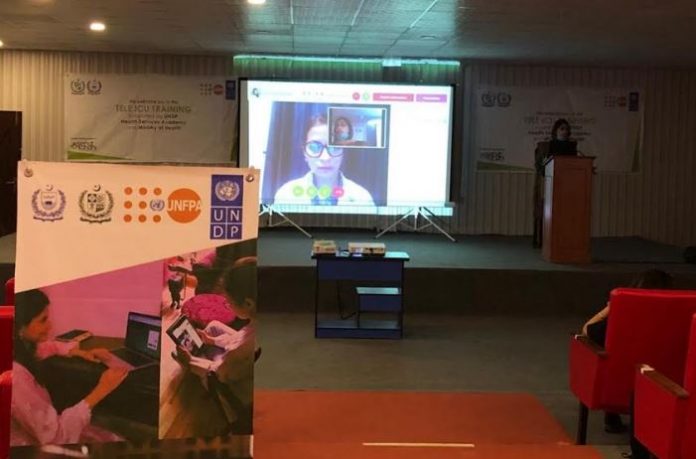KARACHI: Leveraging their existing expertise of tele-medicine solutions that comprises E-Health clinics in low income communities and a mobile application for the masses, Sehat Kahani has now introduced Tele-ICU Technology to their platform.
Together with United Nations Development Program (UNDP), United Nations Population Fund (UNFPA), Health Services Academy and Ministry of Health, Sehat Kahani has launched the first of its kind Tele-ICU project which will enable Critical Care specialists to provide virtual advice in Public and Private ICUs across Pakistan.
According to the President of Pakistan Medical Association (PMA), Pakistan currently has only 50 to 70 critical care specialists to cater needs of a population of 200 million people. Most of these intensivists are concentrated in major cities of Pakistan. This project will allow doctors in ICUs to connect with Critical Care Consultants and Registrars virtually 24/7. The initial pilot will induct 60 ICUs across Sindh, Punjab, KP and Balochistan. Virtual and on-site training will be conducted with the ICU staff. Initial cohorts of training were conducted in Islamabad, AJK and Lahore to kick off the pilot.
Aliona Niculita, Resident Representative a.i., UNDP said,‘UNDP has partnered with Sehat Kahani to launch the Tele-ICU project which aims to increase the capacity of healthcare providers working in public and private ICUs across Pakistan. With limited number of Critical Care Consultants in the country, this intervention will allow improved patient care particularly for those residing in far-flung areas where healthcare systems are inadequate. This project is not only an effort to build a more equitable and resilient society but will also contribute to UNDP’s goal of improving the lives of the people of Pakistan.’
Dr. Bakhtior Kadirov, Deputy Representative UNFPA said that enabling young female doctors to work from home and pairing them with newly trained health care providers will strengthen the capacity of the existing health care system to facilitate the delivery of reproductive health services to women and girls in hard to reach areas. The current CoVID-19 Pandemic has reversed the positive trends in all maternal and child health indicators in recent weeks which calls for targeted interventions to ensure health of mothers and children. Such innovative platforms like Sehat Kahani will support the availability of critical lifesaving maternal health services to women and girls in need.
Dr. Shahzad Ali Khan, Head of Department Public Health, Health Services Academy said, that HSA in collaboration with ADB, WHO and Ministry of NHSRC developed “Basic Assessment & Support in Intensive Care (BASIC)” course to train 4,500 doctors, nurses and paramedics. Training Faculty includes CPSP Certified Intensivists; Course is adopted from Chinese University of Hong Kong. Simultaneously, it envisages 24/7 telemedicine follow up support to trainees for supervision. In this context, HSA has partnered with Sehat Kahani as an extremely innovative Public and Private partnership to ensure technology driven Critical care access to ICUs across the country. As the country fights bravely from the covid19 pandemic, this would be an ideal time to prepare our doctors in critical care to fight the current and future pandemics and critical care issues embracing technology of telemedicine as a bridge. This Pilot project shall impact more than a million lives in the 6 months along with training up to 4500 doctors and nurses.
“With the addition of Tele-ICUs in Pakistan’s existing Intensive Care Units, we look forward to improved patient outcomes, heightened quality of care, and decreased length of stay, while reducing the risk of burnout to our bedside critical care teams. We are indebted to the MOH, HSA and UNDP for their support and trust on Sehat Kahani.” said Dr. Sara Saeed Khurram, CEO of Sehat Kahani.
Dr. Iffat Zafar, Co-founder, Sehat Kahani, in her message said “It was a privilege to meet exceptional doctors & frontline health workers at the training, who are diligently working to improve the health outcomes for AJK with scarce resources. Integration of the TeleICU project in such areas can augment the resilient efforts of our healthcare professionals; physically improving overall healthcare outcomes.”

















